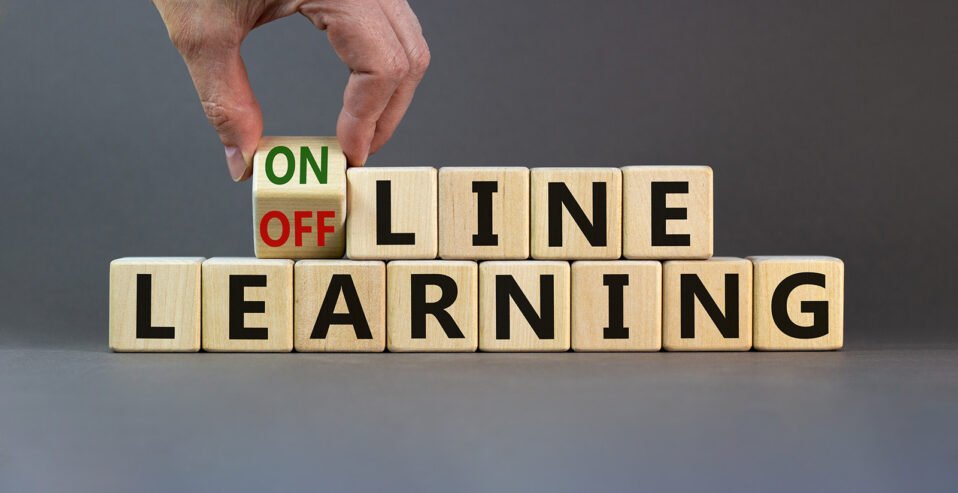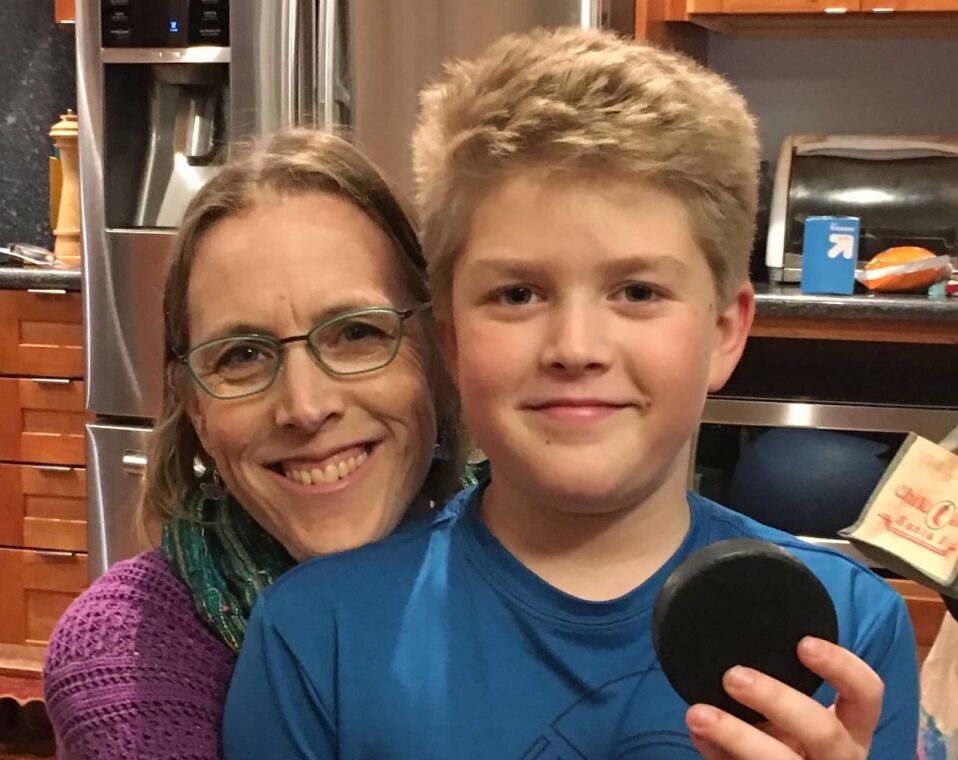By Dana Sheanin, Jewish Learning Works’ CEO and Mindy Gold, Scholar-in-Residence, Bonnie Tenenbaum Digital Learning Initiative.
- Read time: 3 min
- Summary: In this two-part article, we begin to explore how the pandemic has altered the field of Jewish education, and how Jewish LearningWorks, a Bay Area hub of professional development and training, can continue to support educators using the power of educational technology.
In March 2020, Bay Area based Jewish LearningWorks (JLW), like all Jewish educational organizations, was faced with a herculean task.
In the midst of the fear and overwhelm accompanying a global pandemic, how might we immediately provide Jewish educators with the tools they needed to reach and teach their students during lockdown? To do this, we turned to educational coach and technology expert Mindy Gold, who adeptly facilitated a professional development series to help educators level up their skills, virtually overnight. Together we learned everything from how to create breakout rooms on Zoom, to how to use tools like Padlet, Poll Everywhere and Jamboard, all while focusing on the potential of these tools to connect teachers and learners to each other and the content. As the two-week lockdown turned into two months, and then two seasons and beyond, we began to wonder how the pandemic would permanently alter the field of Jewish education. What would our work look like after Covid-19? And how could Jewish LearningWorks, a Bay Area hub of professional development and training, support educators in the new world of blended learning we anticipated was on the horizon?
In response, we created the Bonnie Tenenbaum Digital Learning Initiative named in memory of one of our longtime supporters, who understood far earlier than many of us that educational technology and blended learning hold tremendous promise for Jewish education. With generous support from Bonnie’s family we brought Mindy back, this time as JLW’s scholar-in-residence for the 2021-22 school year. We made plans to introduce bold, new ideas about how to integrate digital technologies and in-person learning as we began to return to face to face programming. We imagined educators would be primed to hold onto the skills they learned last year, and open to steadily advancing their understanding of the role of digital technologies in supporting learning in the year ahead. We were wrong. What we saw as a time for energy and change was still being experienced by many in the community as a time of exhaustion and self-preservation that left little room for thinking beyond the most immediate needs. It turned out that we and our educators were in different places.
“Still believing in the power of educational technology to support learning, Jewish LearningWorks committed to better understanding and meeting this next adaptive challenge.”
A well known principle of adaptive leadership likens these differing “places” to being on a balcony and a dancefloor. Adaptive leadership encourages us to step onto the balcony to view the big picture and to get on to the dance floor to do the daily thinking and doing of our work. As JLW re-visited our educators on the dancefloor this fall, we observed that educators in all settings were thoroughly depleted and had minimal appetite for learning new skills. Hungry to be in-person with their students again, many wanted little to do with technology. It proved hard to separate the freedom to choose to use technology from the prior, trauma-inducing experience of being required to use it to stay connected. Still believing in the power of educational technology to support learning, Jewish LearningWorks committed to better understanding and meeting this next adaptive challenge.
Those familiar with adaptive leadership theory will recall that a technical challenge is one that can be solved with expert knowledge. An adaptive challenge however is more complex, and generally requires new attitudes and ways of doing things to reach a solution. As our fall programs got underway, we could see that we were facing a new adaptive challenge. It wasn’t simply about educators integrating prior learning and digital tools to do their work. Educators’ readiness to engage in professional development was tempered by their constantly changing educational and emotional needs. This required increased sensitivity to a teacher population still experiencing the traumatic impact of the pandemic. But how might we traverse this interstitial space between balcony and dance floor to address this challenge?
In Part 2, we will explore how author Brene Brown’s 5 Cs (Color, Context, Connective Tissue, Cost, and Consequence) helped us slow down and navigate the steps between the dance floor and the balcony.
Initially, we raced through these steps in an attempt to meet teachers’ needs. Now, we are stepping back and slowing down, walking, not running, the “stairs between the balcony and dance floor” to dissect this adaptive challenge and see it, and our stakeholders, more clearly. We’re looking forward to sharing how we grapple with each of these areas.
Free Coaching to Set Up and Maintain Successful Blended Environments
Spend an hour with Mindy Gold, Scholar in Residence at Jewish Learning Works’ Bonnie Tenenbaum Digital Learning Initiative to learn how to combine in-person and digital learning as force multipliers of your teaching and your students’ learning. Ideal for congregational and day school teachers and education directors looking for the right balance for their digital and non-digital classrooms.
About the Authors
Dana Sheanin, CEO, Jewish LearningWorks
Dana Sheanin is Jewish LearningWorks’ first female Chief Executive Officer. She is the founder of Voices for Good, a Jewish LearningWorks initiative focused on amplifying the voices of women professional leaders. Her career has afforded her the opportunity to support a variety of Jewish organizations in the areas of strategic initiative design, organizational capacity building and professional development. Dana believes in the sustaining power of our community’s legacy organizations, and is fortunate to have served two Federations — UJA Federation of New York and the Jewish Federation of the East Bay — as well as the Union for Reform Judaism.
Dana’s professional writing regularly focuses on the need to recruit and invest in the community’s talent pipeline and on the importance of advancing women in Jewish life. She is also the co-author of a chapter on social emotional learning in Reform Jewish education included in Growing Jewish Minds, Growing Jewish Souls. Dana is a proud graduate of the Hebrew Union College School of Nonprofit Management and the University of Southern California School of Social Work. She also trained as a coach at the CoActive Training Institute. She lives with her partner, Sue Bojdak, and four children in Berkeley.
Mindy Gold, Scholar-in-Residence, Jewish LearningWorks’ Bonnie Tenenbaum Digital Learning Initiative
Founder and Lead Consultant of EdtechMMG, an education consulting firm. Her work and research focus on relationship-centered professional learning and educational technology. She is the Graduate Program Leader of the Mandel Teacher Educator Institute (MTEI) and a Coach for the Spertus Institute for Jewish Learning and Leadership. She previously taught as an Instructor for Gratz College’s NEXT program. Mindy holds a Master’s in Teaching from National Louis University (Chicago, IL) and a Certificate in Jewish Education from The University of Cincinnati. She lives in Nashville, TN with her husband and two sons.






